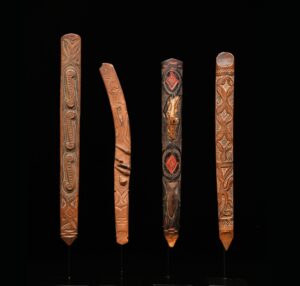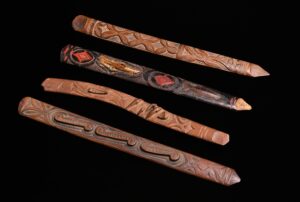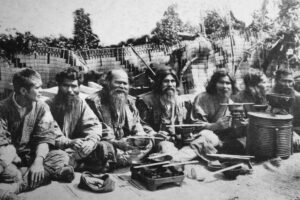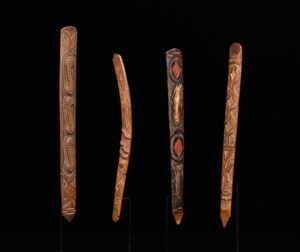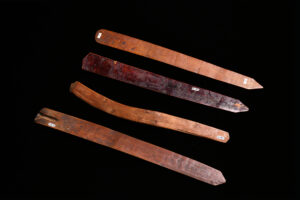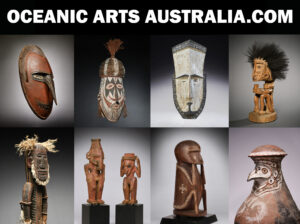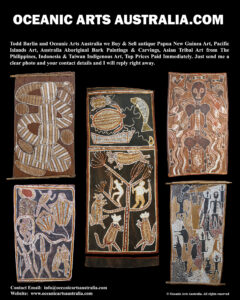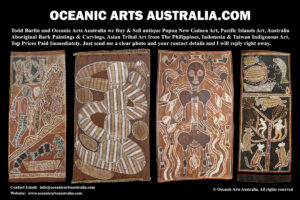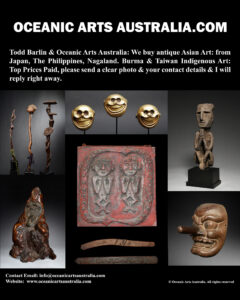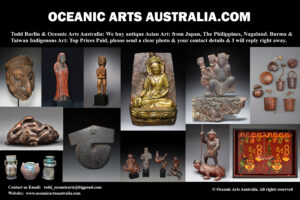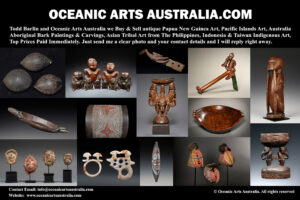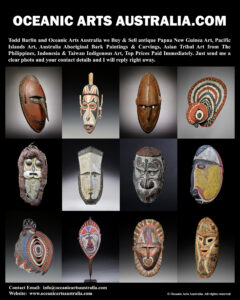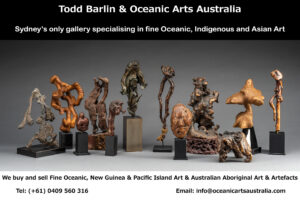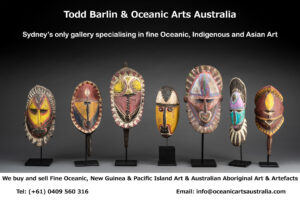Superb Antique Ainu People Japan Ikupasuy Prayer Sticks Hokkaido Island Japan 19th to early 20th Century
| Collection No. | SOLD but more fine antique Ainu & Japanese Artworks coming soon |
|---|---|
| Size | 31cm to 34cm |
Four Superb Antique Ainu People Japan Ikupasuy Prayer Sticks from Hokkaido Island Japan 19th to early 20th Century
See my other fine Japanese Art: https://www.oceanicartsaustralia.com/asian-art/japanese-art/
The Ainu are indigenous people of Hokkaido, Sakhalin, and the Kuril Islands in Japan, they were culturally and physically distinct from their Japanese neighbors until the second part of the 20th century. The Ainu may be descendants of an indigenous population once widely spread over northern Asia; many contemporary Ainu claim some connection to Japan’s prehistoric Jōmon culture.
Ikupasuy are important ceremonial carved wood sticks Ainu men use when making prayers & offerings to their gods and ancestral spirits. They are used in libation ceremonies when millet beer or sake is used as an offering (see historic photo of Ainu men using Prayer Sticks)
The central section is always decorated, here men can use any design they want. Animal and floral designs are popular but some sticks have narrative and abstract designs. At each end, Ikupasuy has simple designs representing the patrilineage (male bloodline) of the man to whom it belongs. These designs are essential as they tell the gods and spirits who is making the offering.
These important objects; the prayer sticks are regarded as intermediaries between the men and men and gods, to whom a few drops of sake are offered with the sticks.
In these four fine Ikupasuy examples; two are carved with fish and other designs & the other looks like a floral motif, each Ikupasuy design is for a specific family or clan. One has gold leaf and lacquer as seen in the photo above. Antique Ikupasuy are rare, I bought these four over the past 40 years of collecting.
The female equivalent would be their secret woven grass belts the designs were handed down from mother to daughter.
Ikupasuy are sometimes (but not always) carved on the back with various symbols called ‘shiroshi’. A common ‘shiroshi’ represents the orca or killer whale. The pointed end of the stick is called the ‘tongue’ of the Ikupasuy.
Provenance: Old Collection Taiwan
The Todd Barlin Collection of Asian and Oceanic Tribal Art
Literature Dr. Moses Osamu Baba; Iku-nishi of the Saghalien Ainu. The Journal of the Royal Anthropological Institute of Great Britain and Ireland, Vol. 79, No. 1/2, 1949.
See my new EXHIBITIONS GALLERY showing the Museums and Art Galleries Exhibitions that I provided artworks for over the past 40 years. There is the link to the article about my artworks published in the prestigious Louvre Magazine in 1996
I have artwork for Museums and Art Galleries and for collectors at every stage of their collecting. I want to encourage people to explore the fine art of New Guinea & West Papua and the Pacific Islands and to be able to see and touch the artworks in a relaxed and friendly manner in my Sydney Gallery. I would like to invite you to visit my gallery and see the artworks in person and also look at my website www.oceanicartsaustralia.com where there are many Galleries & Sub Galleries to explore.
My Gallery of nearly 40 years is the last physical gallery in Sydney that specializes in New Guinea and Oceanic Art. Sydney is very close to New Guinea & the Pacific Islands where all of these amazing artworks came from, Australia’s closest neighbours.
To see many more rare items and the finest masterpieces, please make an appointment with us to visit the gallery.
For all inquiries, please contact us

